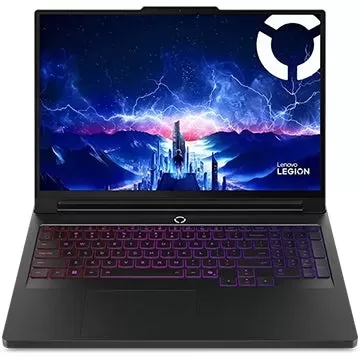Lenovo is now accepting preorders for its highly anticipated 2025 Lenovo Legion Pro 7i Gen 10 gaming laptop. Packed with cutting-edge features, this powerhouse includes Intel's latest processor, Nvidia's top-tier graphics, a stunning OLED display, and generous RAM and SSD configurations. While officially labeled as a preorder, early shipments are already underway with deliveries expected by late April.
Introducing the Lenovo Legion Pro with RTX 5080

Lenovo Legion Pro 7i Gen 10: 16" OLED Display | Intel Core Ultra 9 275HX | RTX 5080 | 32GB RAM | 2TB SSD
$3,599.99 at Lenovo
The Legion Pro 7i boasts a 16" 2560x1600 240Hz OLED panel, Intel's powerful Core Ultra 9 275HX processor, Nvidia's RTX 5080 GPU, 32GB DDR5-6400MHz memory, and dual 1TB SSD storage. The Ultra 9 275HX represents a significant leap over previous-generation processors, delivering genuine performance gains rather than just efficiency improvements. Paired with the RTX 5080 mobile GPU, this combination creates an exceptional gaming platform.
Modern connectivity options include WiFi 7, Bluetooth 5.4, 140W USB-C Power Delivery, Thunderbolt 4 with DisplayPort 2.1, and legacy USB 3.2 Gen 2 Type-A ports. Surprisingly, Lenovo retains the increasingly rare Ethernet port while adding thoughtful touches like a webcam privacy shutter. The premium aluminum-magnesium chassis maintains durability without compromising on style.
Hands-On Experience with RTX 5080 Laptops
While we haven't tested Lenovo's latest model yet, our experience with other RTX 5080-equipped laptops reveals interesting performance characteristics. In traditional rendering, the RTX 5080 shows modest gains over its predecessor, but DLSS 4.0 with multi-frame generation delivers transformative improvements. The Gigabyte Aorus Master (with identical 150W TGP and resolution) serves as a good performance benchmark for what to expect from the Legion Pro 7i.
Gigabyte Aorus Master RTX 5080 Laptop Review by Chris Coke
"Nvidia's 50-series GPUs emphasize AI capabilities over raw performance gains. While the RTX 5080's native rendering shows limited improvement, its AI-powered features like multi-frame generation can dramatically enhance supported games. Though sometimes criticized as 'fake frames,' the technology delivers tangible performance boosts when properly implemented - with results varying by title based on latency handling. With upcoming technologies like neural shaders, there's merit in future-proofing your system, though adoption across games remains a work in progress."









